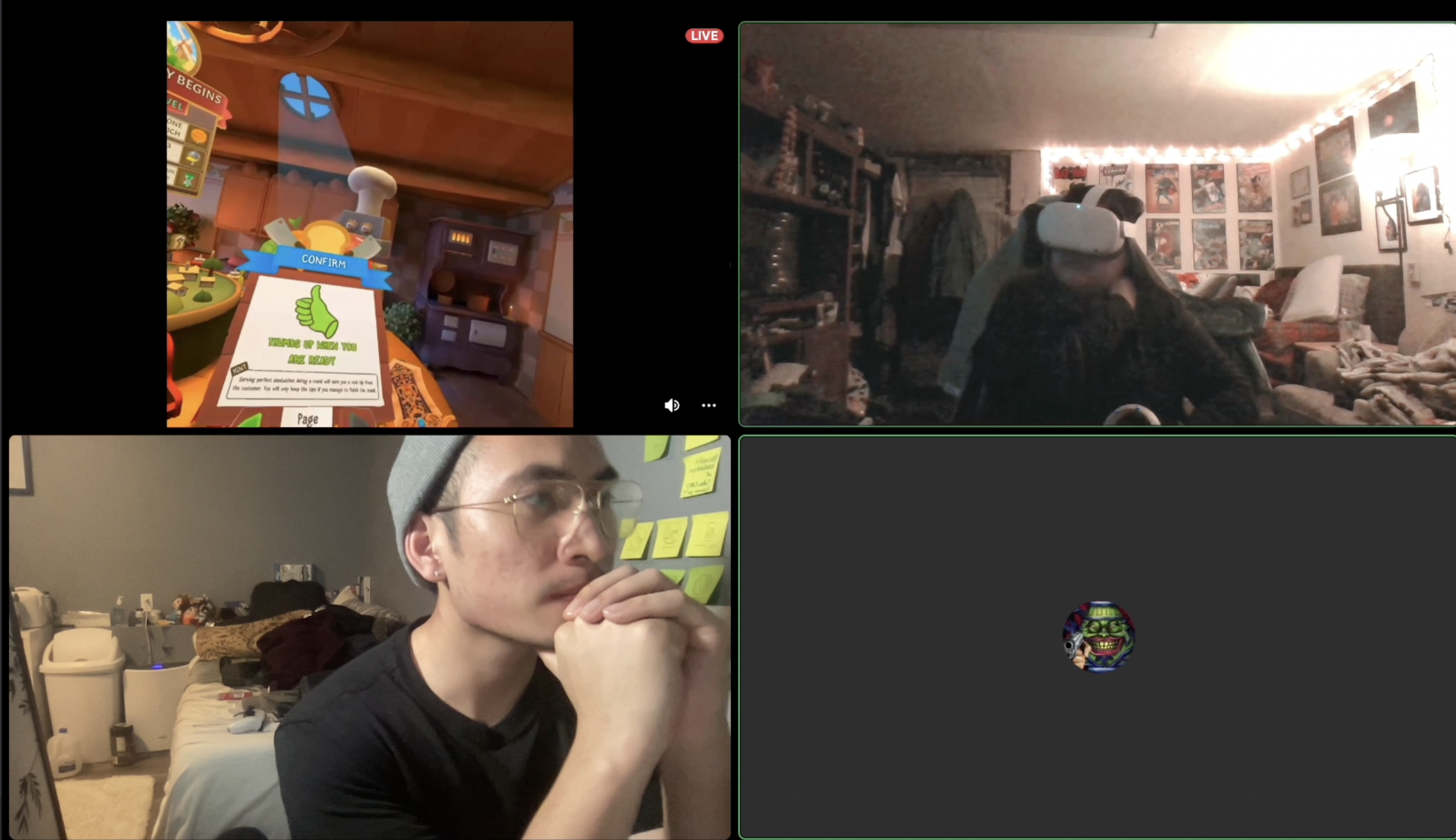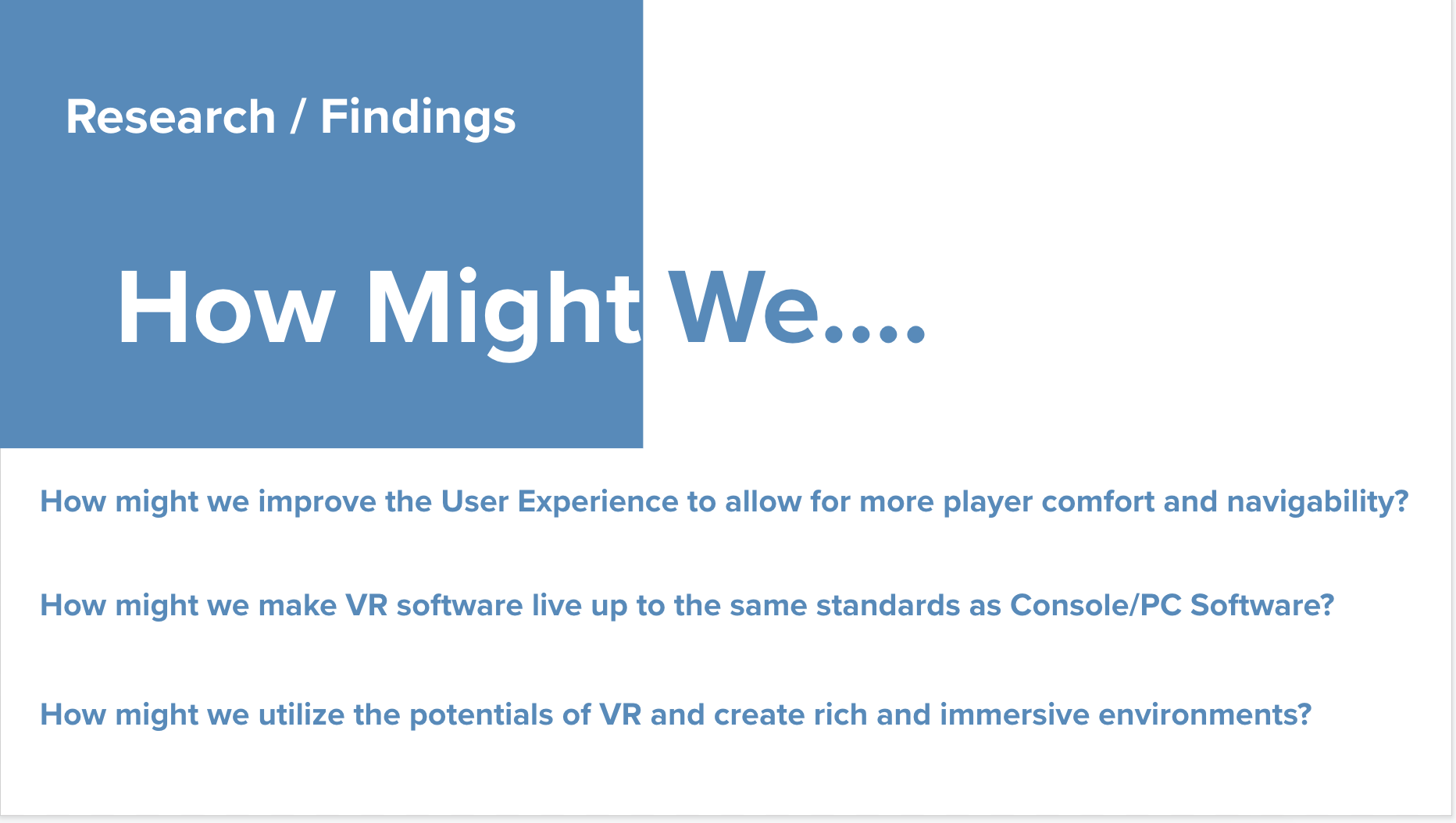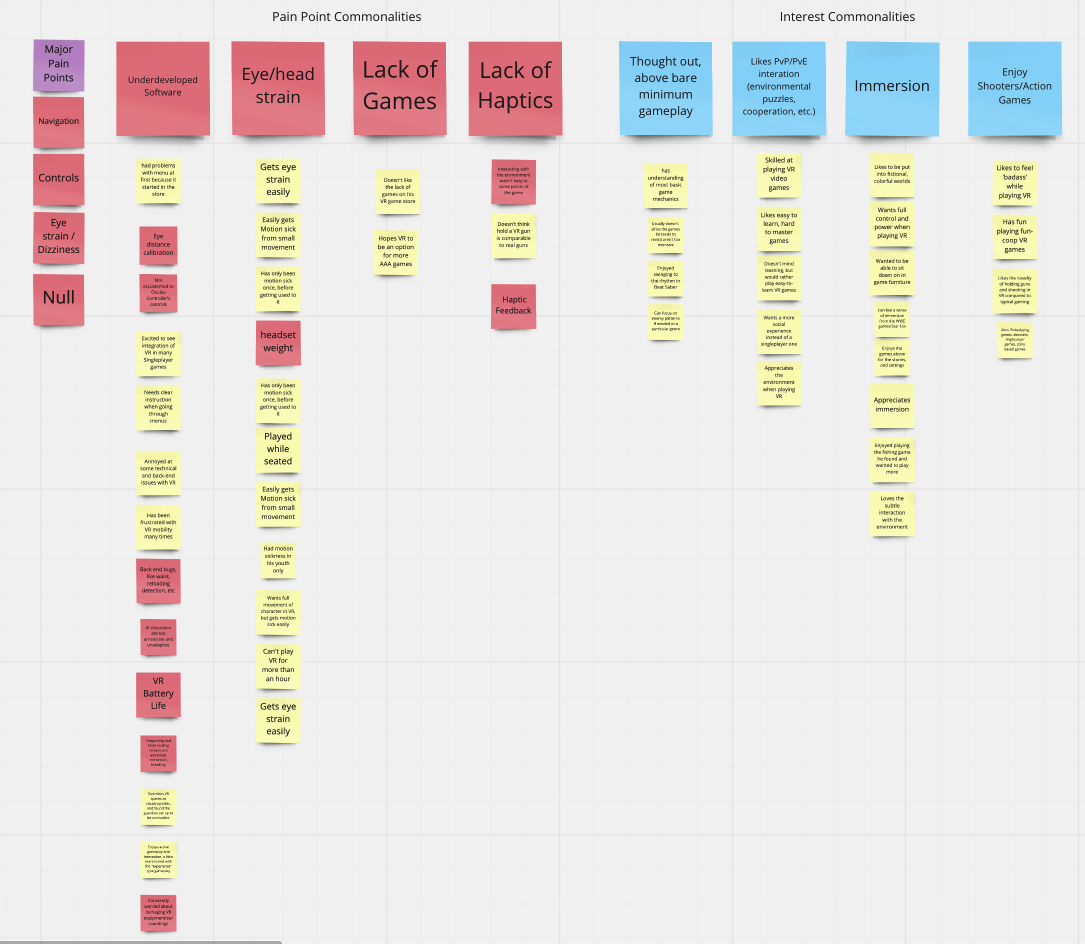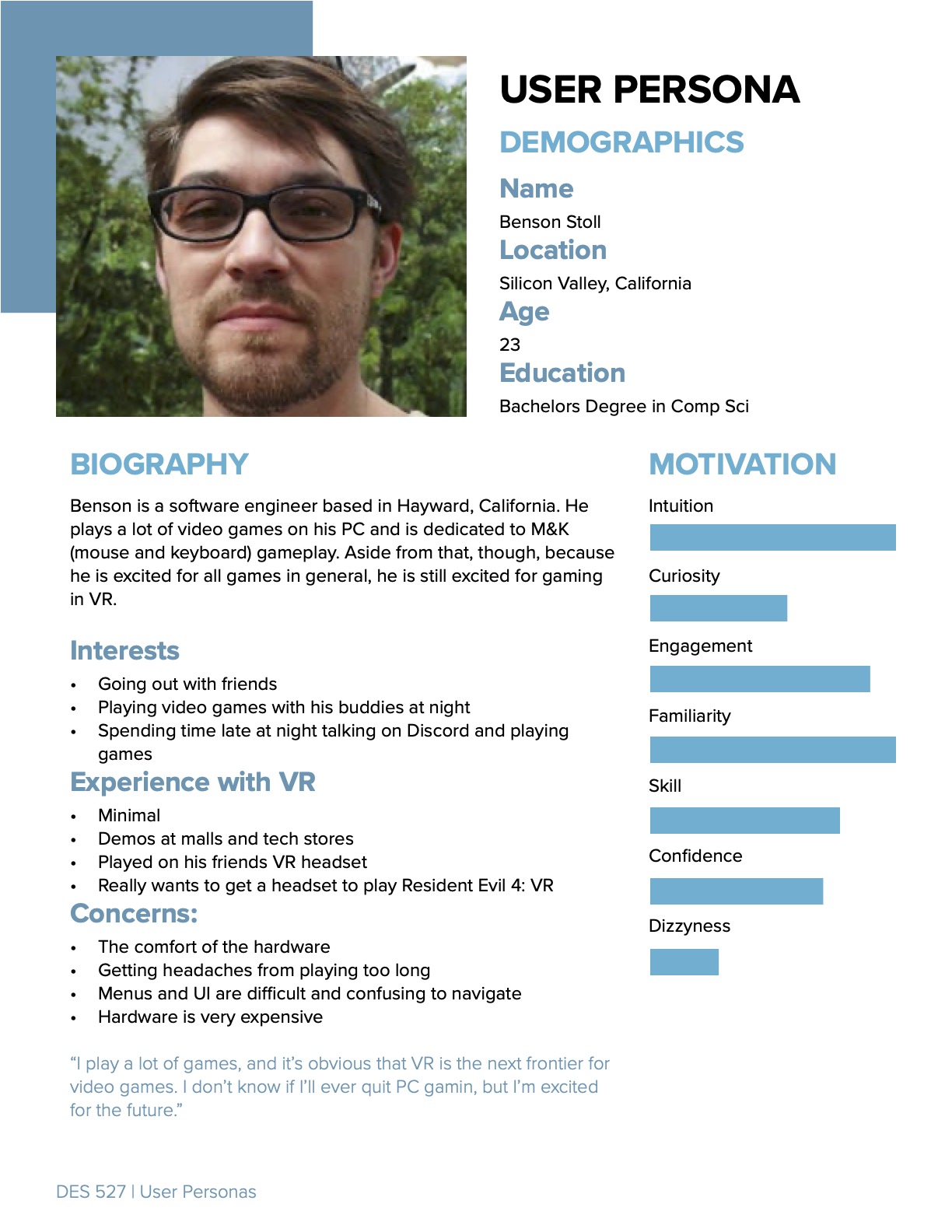UX RESEARCH
PAIN POINTS IN VR AND GAMING.
TEAM
David Raxa, Joseph Lestochi, Steven Miller, Voltaire Valino.
MY ROLE
Observational Interviews, Video and Audio recordation, Video-clip synthesization, Research Synthesization, User Journey creation.
PROJECT OVERVIEW
We want to take a look at what about XR in gaming excites people, what makes people want to experience it, and what the path forward looks like in improving and creating a more immersive experience. Our research also will synthesize pain points in current VR systems and their possible solutions.
RESEARCH
Our approach was to look into the current state of VR and gaming, and to understand the background surrounding the two.

OBSERVATIONAL INTERVIEWS
6 Observational Interviews were conducted of a diverse set of gamers varying from entry-level -> expert level experience
Before and after each session, experts were inquired on their excitements and frusterations when playing their VR games.

Gamers were observed on their intuition, familiarity, and curiosity when playing their favorite VR games.
SYNTHESIS
Our synthesis allowed us to target similiar pain points and interests of their VR gameplay.
NOTABLE INSIGHTS
All interviewes appreciated VR's sense of immersion.
Users wanted a full sense of interaction, movement, and control.
Gamers wanted to utilize micro-interactions during gameplay.
NOTABLE PAIN POINTS
Interviewees were frusterated or confused with the navigation of the Oculus Quest.
Almost all partcipants experienced headaches, eye strain.
There was a notable difference of intuition between casual and experienced gamers.
OUR PROBLEMS
There's a noteworthy GAP between new and experienced VR gamers.
VR is an underdeveloped field both in terms of software and hardware.
Player comfort/User Experience does not have enough of a focus.
The immersive capabilities of VR are underutilized.
HOW MIGHT WE...

OUR PERSONA
Our Persona, Benson, was an average PC Gamer from California. We chose Benson as our persona so we could target his pain points that are keeping him from buying a VR.
Addressing Benson's issues will allow more inclined VR gamers a larger incentive to play, as users who regularly play videogames are more enticed to purchase a VR along with their consoles.
Focusing on these issues allowed us to target the overall UX experience for a more sustainable future in VR.
OUR OUTCOMES
Adressing Overall User Experience and Comfort
Firstly, we must take into account that VR is still in its beginning stages. Being said, this provides much potential for users. In order to improve retention and playability, designers should focus on enchancing and improving VR's UI for easier and more intuitive navigation. Either in the physical plane with headset weight and overall comfort, and in the digital landscape with its navigational elements, VR Devices need to create more intuitive and understandable methods in order to be a true competitor to gaming systems.



